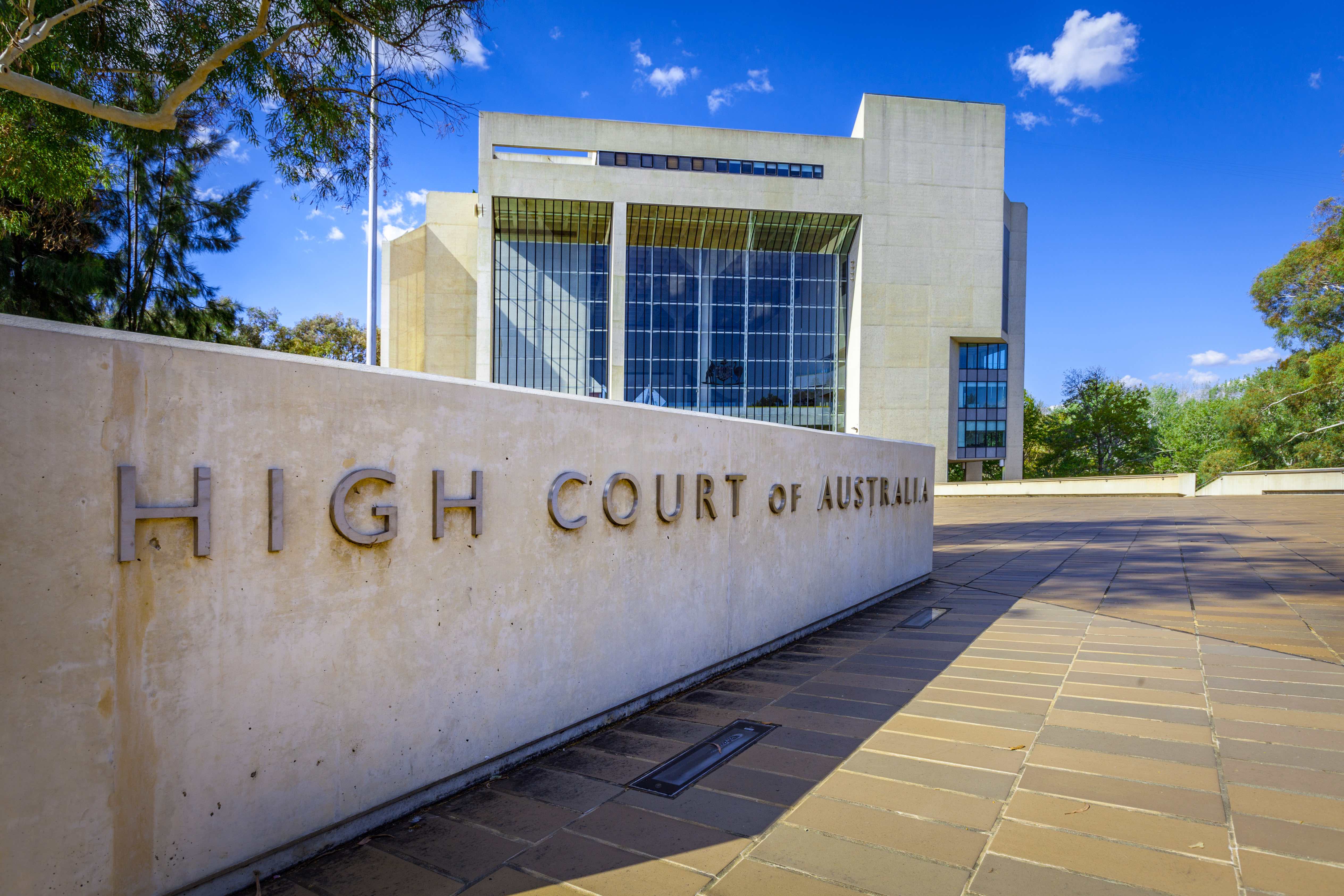High Court. Would s 34(2)(b)(ii) of the Australian Citizenship Act 2007 (Cth) be Constitutionally valid to the extent that it is reasonably capable of being seen as necessary for the purpose of protecting the integrity of the naturalisation process? If so, is it so capable? Is s 34(2)(b)(ii) of the Citizenship Act invalid in its operation in respect of the plaintiff because it is not supported by s 51(xix) of the Constitution (naturalisation) or because it reposes in the Minister the exclusively judicial function of punishing criminal guilt?
Sections 34(2)(b)(ii) and (5) of the Australian Citizenship Act 2007 (Cth) provided:
Citizenship by conferral
(2) The Minister may, by writing, revoke a person's Australian citizenship if:
(b) any of the following apply:
(ii) the person has, at any time after making the application to become an Australian citizen, been convicted of a serious offence within the meaning of subsection (5);
Serious offence
(5) For the purposes of this section, a person has been convicted of a serious offence if:
(a) the person has been convicted of an offence against an Australian law or a foreign law, for which the person has been sentenced to death or to a serious prison sentence; and
(b) the person committed the offence at any time before the person became an Australian citizen.
Some of the questions to the High Court (HCA) were as follows:
Question 1: Would s 34(2)(b)(ii) of the Australian Citizenship Act 2007 (Cth) be Constitutionally valid to the extent that it is reasonably capable of being seen as necessary for the purpose of protecting the integrity of the naturalisation process?
Question 2: Can it be said that, "in the application of the principle in Lim, the criterion of reasonable necessity can be described as requiring a law which empowers the imposition of a form of detriment to be justified", but that "the application of the principle in Lim is ultimately directed to a single question of characterisation", namely "whether the power to impose the detriment conferred by the law is properly characterised as punitive and therefore as exclusively judicial"?
Question 3: The plaintiff was convicted after having been granted Australian citizenship of offences committed before becoming a citizen. Is the form of denaturalisation for which s 34(2)(b)(ii) combines with s 34(2)(a) and (c) of the Citizenship Act to provide, in their modified application to a person in the position of the plaintiff, reasonably capable of being seen as necessary to protect the integrity of the naturalisation process for which s 21(2)(h) provided?
Question 4: "Were the Minister to purport to invoke the power of revocation of the Australian citizenship of someone convicted of a serious crime for the purposes of retribution, denunciation or deterrence under the guise of being satisfied that it would be contrary to the public interest for that person to remain an Australian citizen", would the purported exercise of power be unauthorised on the basis that the power would have been exercised for an extraneous and improper purpose?
Question 5: Can the absence of a time limit within which the Minister is required to exercise the power after the date of conviction "detract from the non-punitive character of s 34(2)(b)(ii) established by the combination of features to which reference has been made"?
Question 6: Is s 34(2)(b)(ii) of the Citizenship Act invalid in its operation in respect of the plaintiff because it is not supported by s 51(xix) of the Constitution (naturalisation) or because it reposes in the Minister the exclusively judicial function of punishing criminal guilt?
The HCA answered those questions as follows:
The remainder of this article is only available to Case Law and Platinum subscribers.
Read our Terms & Conditions and upgrade below:
Monthly Subscriptions
Annual Subscriptions
Where GST applies, the above amounts are inclusive of GST.
Content Types
Basic Content includes basic news, some media articles and selected announcements.
Premium Content includes all our content, except for Case Law Content. In other words, it includes Basic Content, plus all our articles on legislative and policy changes, industry updates and the Migration Legislation Tracker.
Case Law Content includes Basic Content, plus case law summaries, analysis and extract, but does not include Premium Content.
Platinum Content includes Basic Content, plus Premium Content, plus Case Law Content. In other words, it includes ALL our content.
If you already have a Case Law or Platinum subscription, click on 'Login' below.











